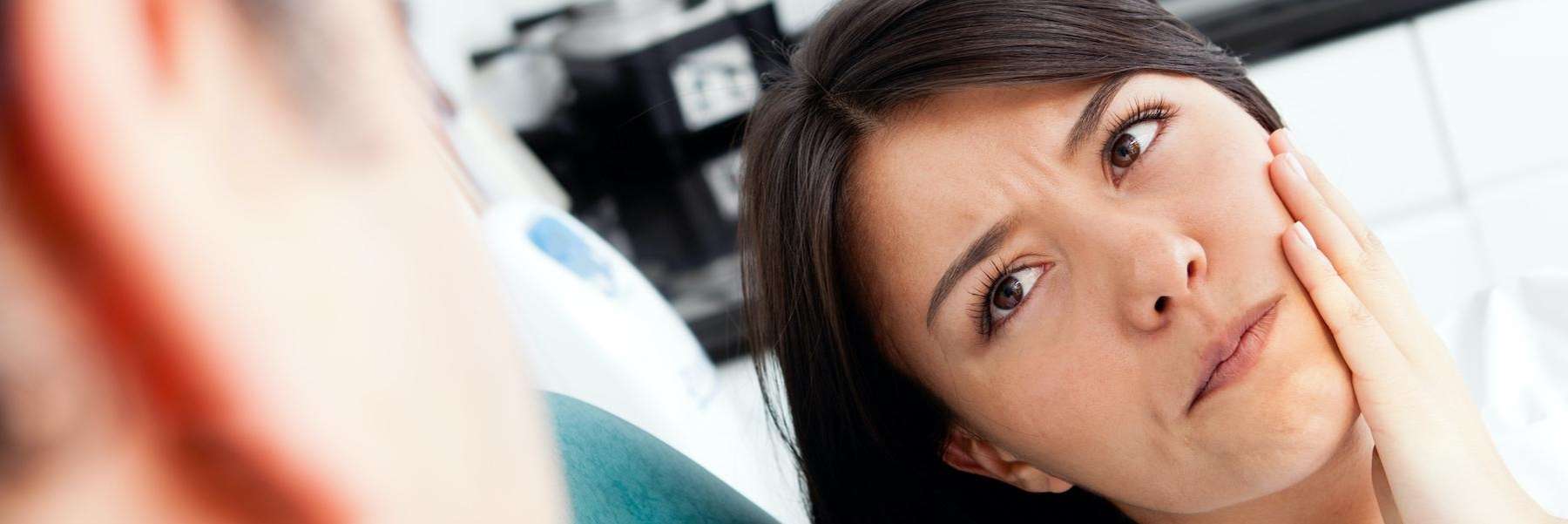
TMD and Bruxism Treatment in Lake Oswego
Do you know the importance of the position of your teeth? Your occlusion, also called your bite, is the position of your jaw when your teeth are together. In the past, dentists based treatment decisions on the natural position of your bite, rather than attempting adjustments.
However, modern dentistry has shown us that a problematic jaw position can play a significant role in TMJ issues. As a neuromuscular dentist, Dr. Bowden takes every aspect of the jaw including teeth, joints, and muscles into consideration to offer specialized treatments for TMD. At Aesthetic Dentistry of Lake Oswego, we approach every aspect of your care with whole-body wellness in mind, recognizing the deep connection between your occlusion and your overall health.
What is Temporomandibular Joint Disorder (TMD)?
 TMD refers to temporomandibular joint disorders. To understand TMD, Dr. Bowden believes it’s important to understand how the muscles in your jaw work.
TMD refers to temporomandibular joint disorders. To understand TMD, Dr. Bowden believes it’s important to understand how the muscles in your jaw work.
The temporomandibular joints, the TMJ, are what connect your jaw to your skull. These joints work similarly to a ball and socket. The end of the joint, referred to as the condyle, works within the corresponding depression in the skull, called the fossa. Between these two structures lies the articular disk, a small, round piece of cartilage that connects and separates the joints, allowing you to perform tasks such as chewing, swallowing, speaking, and smiling.
Depending on how the muscles are holding the jaw, the articular disk may either move freely or become pinched, resisting the natural movement of the jaw until it’s released. This is what produces the signature clicking sound many patients with TMD are familiar with.
Common Factors Contributing to TMD
Other common causes of temporomandibular joint disorders include the following:
Bruxism
Repeated jaw clenching or teeth grinding (bruxism), can change your bite. If your bite becomes misaligned, then your muscles may push the temporomandibular joints out of their sockets in order to force your teeth together. This strain can contribute to the development of TMD.
Stress
When you’re stressed, you’re more likely to experience muscle tension, which can lead to clenching your jaw or grinding your teeth. This can lead to the repositioning of the temporomandibular joints out of their sockets, causing TMD.
Arthritis
Arthritis is a painful inflammation of one or more joints. If you have arthritis, your temporomandibular joints could be affected, contributing to jaw pain and difficulties with biting and speaking.
Trauma
An injury to the muscles of your head and neck can lead to damaged or displaced temporomandibular joints.
Improper Head Posture
Because of the interdependent nature of the entire musculoskeletal system, the postural muscles of your head can be affected by the posture of the rest of your body. If unresolved tension in the muscles of the neck and upper back affects your posture, it may interfere with your bite and cause TMJ issues.
I highly recommend Dr. Bowden.
I recently went in for a filling and was offered a laser procedure instead of the usual numbing procedure. Wow, what a difference - It was quick, painless, and I felt great afterwards. I highly recommend Dr. Bowden. Everyone in the office is very friendly and professional. Great experience.
- Cindy
Symptoms of TMJ/TMD
Temporomandibular disorders are a serious concern that causes more issues than a simple clicking noise. Other common symptoms of TMJ/TMD include:
- Chronic pain and soreness in your face, neck, head, shoulders, and jaw
- Temporal headaches due to overworked postural muscles in the jaw
- Tinnitus, a regular ringing in your ears
- Stiffness or an inability to relax your jaw
- Jaw clenching or grinding
- Swallowing problems
- Excessive snoring or sleep apnea
TMD Treatment Options from a Holistic Dentist
As a neuromuscular dentist in Lake Oswego, Dr. Bowden will perform a full examination and ask about any symptoms relating to your posture, appearance, the condition of your teeth, and existing bite to provide an accurate diagnosis. He’ll also collaborate with your other healthcare professionals as needed to help alleviate all possible issues that can cause or contribute to TMD.
If there’s nothing Dr. Bowden can do for you, he’ll refer you to another healthcare professional for evaluation of other possible issues.
Possible treatments for temporomandibular disorders include:
- Oral appliance therapy
- Surgery
- Therapy
- Medication
- Electrical muscle stimulation
The kind of treatment you receive will depend on your unique case. Rest assured that Dr. Bowden will consider every aspect of your situation to arrive at the best result.
Meet Our Dentist:

Dr. Larry Bowden
Relieve Your Jaw Pain at Aesthetic Dentistry of Lake Oswego
If you’re ready to find relief from temporomandibular joint disorders, call Aesthetic Dentistry of Lake Oswego at (503) 675-7300 to schedule your appointment with Dr. Bowden. You can also request an appointment online and a friendly team member will get back to you shortly. We provide lasting relief to new and returning patients from Lake Oswego and surrounding areas such as Portland, Tualatin, Wilsonville, Beaverton, Tigard, and Sherwood, OR.